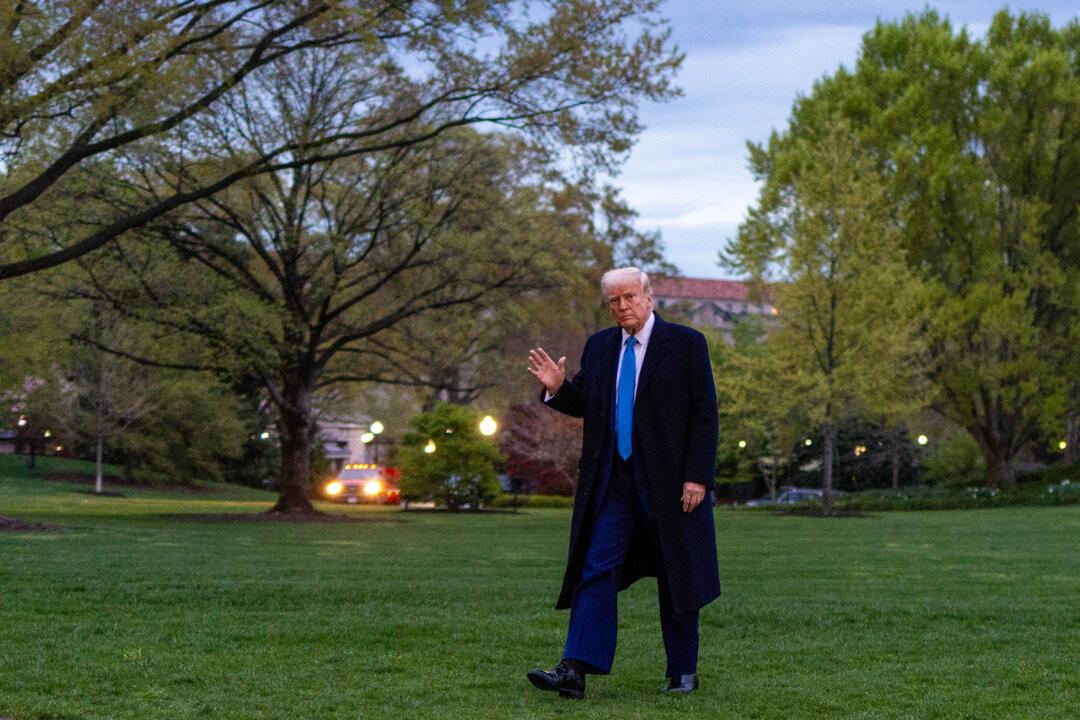President Donald Trump on Sunday defended his sweeping tariffs on imports from other countries, saying they are aimed at fixing the trade imbalance, not at causing a global stock market selloff.
“I don’t want anything to go down. But sometimes you have to take medicine to fix something,” Trump told reporters aboard Air Force One.





